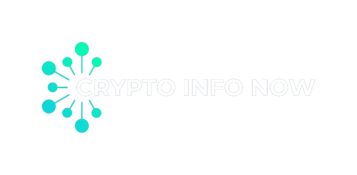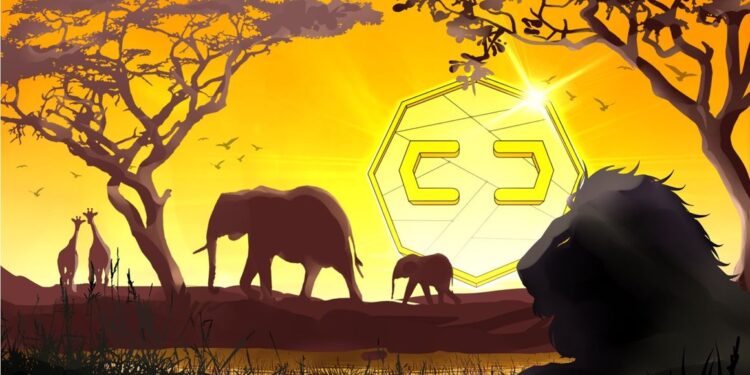[ad_1]

In my youth, amid Ghana’s cocoa farms, I walked with my grandfather, a soldier turned farmer. He shared how these beans fueled our nation’s pleasure and economic system. Because the digital age unfurls, I typically marvel: Might the fashionable marvel of crypto tokenization be the change my grandfather and numerous cocoa farmers want?
Regardless of their huge agricultural and mineral wealth, many African international locations face points akin to restricted entry to world markets, unfair buying and selling circumstances, lack of transparency in transactions and susceptibility to market manipulation. These challenges hinder financial development, perpetuate poverty and stop many Africans from realizing their full potential.
For many years, Africa’s economic potential has been stifled by exterior forces with vested pursuits. Colonial-era ways of financial management may need light, however fashionable neocolonialism is subtly pervasive. It thrives by way of unfair commerce agreements, financial insurance policies dictated by world monetary powerhouses and a sheer lack of transparency in worldwide dealings.
Associated: An ETF will bring a revolution for Bitcoin and other cryptocurrencies
Take, as an example, Ghana’s authorities beneath President Nana Akufo-Addo, which has procured $3 billion in loans from the Worldwide Financial Fund since 2017. Whereas these loans may need briefly stuffed coffers, in addition they deepened the nation’s indebtedness.
As an alternative of looking for IMF loans, Akufo-Addo may have championed commodity tokenization. Tokenizing Ghana’s key commodities — akin to gold, cocoa and oil — on the blockchain would create important financial alternatives. In 2022, Ghana produced an estimated 3.7 million ounces of gold, valued at $6.7 billion; a document 689,000 tonnes of cocoa, valued at $1.65 billion; and produced oil at a fee of roughly 150,000 barrels per day.)
Contemplating the numbers, it’s conceivable that such an initiative in Ghana may improve commerce volumes for these commodities by a number of billion {dollars}. With the present market costs being $1,909 per ounce for gold, $3,340 per tonne for cocoa, and $82 per barrel for oil — and the opportunity of considerably diminished transaction charges by way of tokenization, which might be as a lot lower than conventional avenues, according to the Boston Consulting Group — the resultant financial exercise from world buying and selling may considerably improve Ghana’s income.
#Tokenization will assist drive Blockchain to mass adoption n there’s over $100 TRILLION in Belongings able to be tokenised $QNT $CSPR $RIO are all pioneers on this sector
Act Accordingly #Bitcoin #eth #QNT #CSPR #RIO pic.twitter.com/9qutoi1jKU
— ConstructionTrader.eth (@C_Traderz) August 14, 2023
Tokenizing commodities, particularly Ghana’s gold reserves, presents a contemporary avenue to drive the economic system ahead. Let’s delve into what it means: Ghana may use its bodily gold to again digital tokens, just like the decentralized stablecoin Dai (DAI), which is backed by a number of real-world property. These tokens, anchored by tangible gold, turn out to be a globally acknowledged digital forex.
Why would anybody purchase this digital forex backed by gold? Buyers and international locations searching for a secure digital forex could be attracted. This isn’t only a digital quantity — every token holds the worth of actual gold. It’s a method for traders to carry gold with out the bodily constraints, making it particularly enticing in a digital age.
How would this diversify Ghana’s income streams? Effectively, tokenizing opens up new avenues for earnings. Conventional gold gross sales stay, however now there’s a further stream: digital gold gross sales. Every time a token is purchased, Ghana advantages. Plus, the nation may introduce charges or premiums on these digital transactions.
Lastly, the transfer would place Ghana on the digital forefront. With the rise of digital economies, being a pioneer in such initiatives might be a game-changer, permitting Ghana to dictate its financial narrative within the digital realm.
The potential income from tokenized commodities, if explored, may have supplied a viable various to borrowing sprees. Take into account Ghana’s finance minister, Ken Ofori-Atta. His insurance policies lean on taxing impoverished residents. It’s baffling that in a quickly advancing digital age, establishing a transparent regulatory framework for crypto applied sciences hasn’t been a precedence. Might this hesitancy stem from a concern of shedding management over conventional monetary energy buildings? Or is it merely an absence of foresight?
Furthermore, worldwide establishments just like the World Financial institution are exhibiting inertia with regards to selling improvements like crypto tokenization. Why do they seem keener on advancing loans than fostering an surroundings that encourages self-sustainability by way of know-how? Have they got underlying motives that prioritize their pursuits over Africa’s real growth?
The promise of blockchain know-how presents a beacon of hope to handle these injustices. By adopting blockchain, international locations like Ghana can guarantee a stage of transparency the place each transaction is recorded and stays unalterable. This clear strategy will function a formidable weapon in opposition to corruption and illicit monetary flows, and can be a step towards higher governance.
Tokenization of commodities through blockchain additionally makes direct commerce attainable, successfully eradicating the necessity for middlemen who, traditionally, have pocketed undue income. This ensures that farmers and producers earn their rightful share.
Reasonably than being depending on exterior monetary juggernauts, a decentralized monetary system would possibly pave the best way for larger self-reliance, whereas additionally curbing the overarching influences of neocolonial pursuits. Moreover, the potential of tokenized commodities showcases the huge alternatives blockchain presents in introducing new income avenues, diminishing exterior money owed and uplifting the economic system on the entire.
Ghana may equally supply to again DAI with its gold reserves. Botswana may do the identical with its diamond reserves. These commodities, which historically have been undervalued or traded suboptimally, may now generate appreciable income. By tokenizing these property, Ghana couldn’t solely promote its gold at worldwide market charges but in addition introduce a tokenization premium and charge, which might be a complete new income stream.
Associated: Worldcoin: Should you let Sam Altman scan your eyeballs?
If the actions of firms like Goldman Sachs and BackRock are any indication, tokenization might be an enormous market alternative. Embracing blockchain may add trillions to the continent. It may spur job creation, improve funding, and a lot extra.
Nonetheless, to appreciate this potential, there’s a want to handle challenges in logistics, together with storage, transport and tax concerns. Belief and safety are additionally paramount, probably requiring third-party audits from respected globally acknowledged corporations. Audits from firms like KPMG or PwC would lend important credibility and assurance to your entire tokenization course of, bolstering world investor confidence within the integrity and safety of Ghana’s tokenized commodity market.
If Ghana grants visionary crypto entrepreneurs a powerful regulatory regime, blockchain-driven development may spearhead an financial revolution of their nation. That revolution may have a ripple impact throughout the continent, with or with out African governments which have woefully failed their individuals. To me, that is extra than simply hypothesis. It’s a name for reflection — and for motion.
Emmanuel Asamoah is the top of enterprise growth and partnerships in Africa for Bybit. He beforehand labored as a enterprise growth supervisor at Binance, Yellow Card and several other different high Web3 firms globally and in Africa. He started his journey within the crypto area in 2017 when he was a pupil on the College of Ghana Enterprise College.
This text is for normal info functions and isn’t meant to be and shouldn’t be taken as authorized or funding recommendation. The views, ideas and opinions expressed listed below are the creator’s alone and don’t essentially mirror or characterize the views and opinions of Cointelegraph.
[ad_2]
Source link


